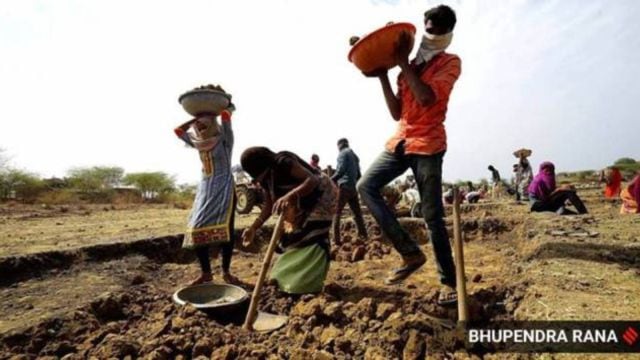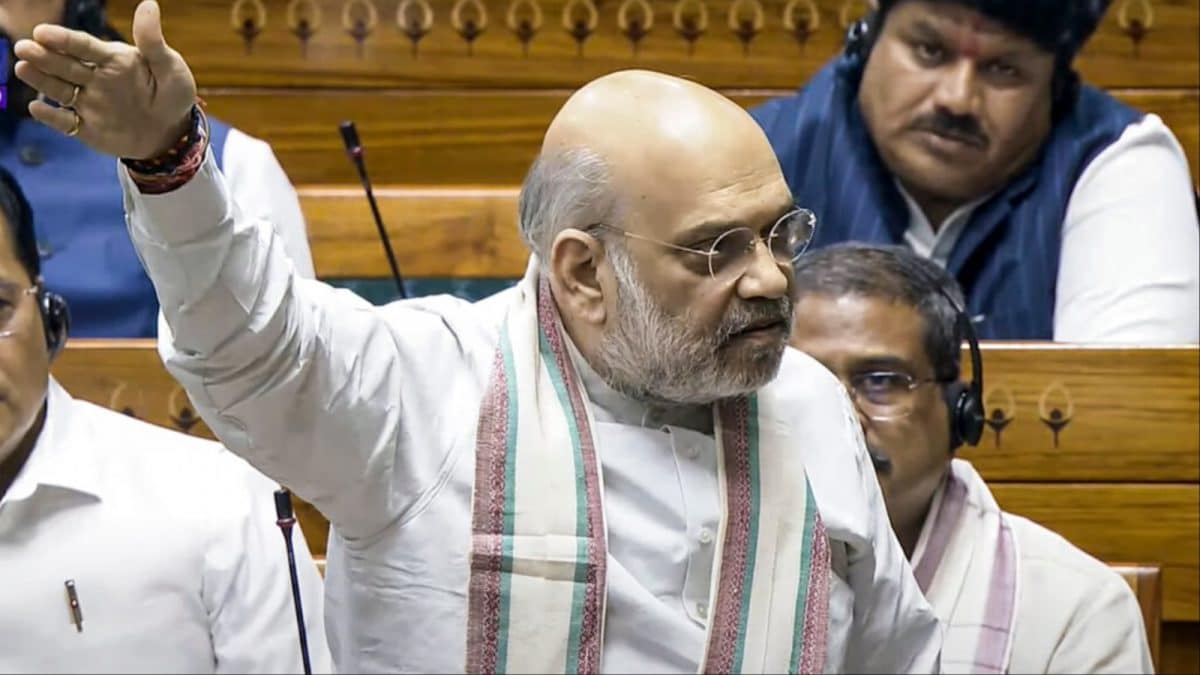ARTICLE AD BOX
 The Ministry of Rural Development flagged the issue during the first Performance Review Committee (PRC) meeting for the financial year 2025-26, which was held on July 14 and 15. (File Photo)
The Ministry of Rural Development flagged the issue during the first Performance Review Committee (PRC) meeting for the financial year 2025-26, which was held on July 14 and 15. (File Photo)
Central teams, during their special visits to monitor the functioning of the Mahatma Gandhi National Employment Guarantee Scheme (MGNREGS) in 23 states in the 2025-26 financial year, found financial misappropriation and procedural gaps in several states.
The anomalies ranged from ‘work not found or not commensurate with the expenditure’ to ‘use of labour displacing machinery’ to ‘bypassing’ of National Mobile Monitoring System (NMMS), an initiative to record workers’ attendance digitally, The Indian Express has learnt.
It is learnt that the Ministry of Rural Development, the nodal ministry for the MGNREGS, flagged the issue during the first Performance Review Committee (PRC) meeting for the financial year 2025-26, which was held on July 14 and 15. The meeting was attended by top Central and state government officials.
The ministry has shared the findings with the states concerned, but over half of them have not sent any reply or action taken report (ATRs) to the Centre on the findings, said a source. The states were Andhra Pradesh, Kerala, Bihar, Chhattisgarh, Gujarat, Madhya Pradesh, Maharashtra, Meghalaya, Nagaland, Rajasthan, Uttar Pradesh, and Uttarakhand, said a source, adding that 48 Central teams visited 21 districts across these states.
During the review meeting, the ministry also shared major findings with them. The findings were grouped in three categories: financial misappropriation, procedural gaps, and lack of good governance initiatives in the implementation of the MGNREGS.
In the financial misappropriation category, the major findings were “work not found or not commensurate with the expenditure” and “taking up non-permissible works/activities”. Besides, procedural gaps, including violation of procurement procedure, use of labour-displacing machinery, and bypassing of the National Mobile Monitoring System (NMMS) — a digital initiative introduced for recording attendance of MGNREGS workers– were also noted.
The findings are significant given the steps taken by the Centre to bring transparency and efficiency in the implementation of the MG-NREGS. The ministry had made attendance through the NMMS mandatory with effect from January 1, 2023.
Story continues below this ad
Apart from marking of attendance through the NMMS, two time-stamped and geotagged photographs of the workers in a day are also required to be uploaded on the scheme’s portal. By invoking Section 27 of the MGNREGA, 2005, the Centre had stopped the release of funds to West Bengal with effect from March 9, 2022, “due to non-compliance of directives of the Central Government.” Since then, no work under the NREGS has taken place in the state.
The MGNREGS was launched in 200 most backward rural districts of the country in 2006-07 and was extended to an additional 130 districts during 2007-08; and to the entire country from the financial year 2008-09. The scheme saw a spike in demand for work during 2020-21 when a record 7.55-crore rural families availed the scheme in the wake of Covid-19 outbreak. The scheme became a safety net for migrants who returned to their villages during the Covid-19 lockdown in 2020. Since then, the number of families working under the MGNREGS has gradually come down — 7.25 crore in 2021-22, 6.18 crore in 2022-23, 5.99 crore in 2023-24 and 5.79 crore in 2024-25. The last three financial years (2022-23 to 2024-25) do not include MGNREGS beneficiary figures for West Bengal, where the scheme has been suspended since March 2022).
Harikishan Sharma, Senior Assistant Editor at The Indian Express' National Bureau, specializes in reporting on governance, policy, and data. He covers the Prime Minister’s Office and pivotal central ministries, such as the Ministry of Agriculture & Farmers’ Welfare, Ministry of Cooperation, Ministry of Consumer Affairs, Food and Public Distribution, Ministry of Rural Development, and Ministry of Jal Shakti. His work primarily revolves around reporting and policy analysis. In addition to this, he authors a weekly column titled "STATE-ISTICALLY SPEAKING," which is prominently featured on The Indian Express website. In this column, he immerses readers in narratives deeply rooted in socio-economic, political, and electoral data, providing insightful perspectives on these critical aspects of governance and society. ... Read More



.png)
.png)
.png)



























 English (US) ·
English (US) ·